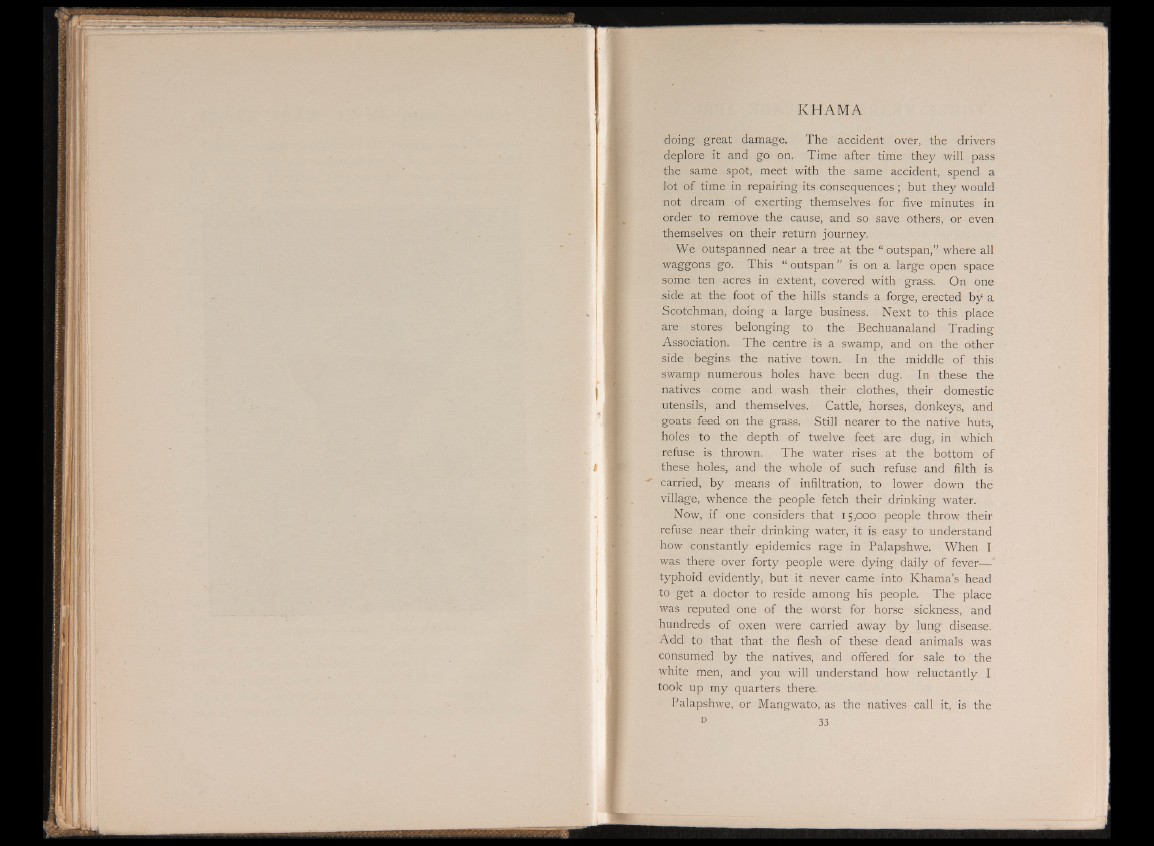
K H AM A
doing great damage. The accident over, the drivers
deplore it and go on. Time after time they will pass
the same spot, meet with the same accident, spend a
lot of time in repairing its consequences; but they would
not dream of exerting themselves for five minutes in
order to remove the cause, and so save others, or even
themselves on their return journey.
We outspanned near a tree at the “ outspan,” where all
waggons go. This “ outspan” is on a large open space
some ten acres in extent, covered with grass. On one
side at the foot of the hills stands a forge, erected by a
Scotchman, doing a large business. Next to this place
are stores belonging to the Bechuanaland Trading
Association. The centre is a swamp, and on the other
side begins the native town. In the middle of this
swamp numerous holes have been dug. In these the
natives come and. wash their clothes, their domestic
utensils, and themselves. Cattle,' horses, donkeys, and
goats feed on the grass. Still nearer to the native huts,
holes to the depth of twelve feet are dug, in which
refuse is thrown. The water rises at the bottom of
these holes, and the whole of such refuse and filth is
carried, by means of infiltration, to lower down the
village, whence the people fetch their drinking water.
Now, if one considers that 1 5,000 people throw their
refuse near their drinking water, it is easy to understand
how constantly epidemics rage in Palapshwe. When I
was there over forty people were dying daily of fever—'
typhoid evidently, but it never came into Khama’s head
to get a doctor to reside among his people. The place
was reputed one of the worst for horse sickness, and
hundreds of oxen were carried away by lung disease.
Add to that that the flesh of these dead animals was
consumed by the natives, and offered for sale to the
white men, and you will understand how reluctantly I
took up my quarters there.
Palapshwe, or Mangwato, as the natives call it, is the
D 33